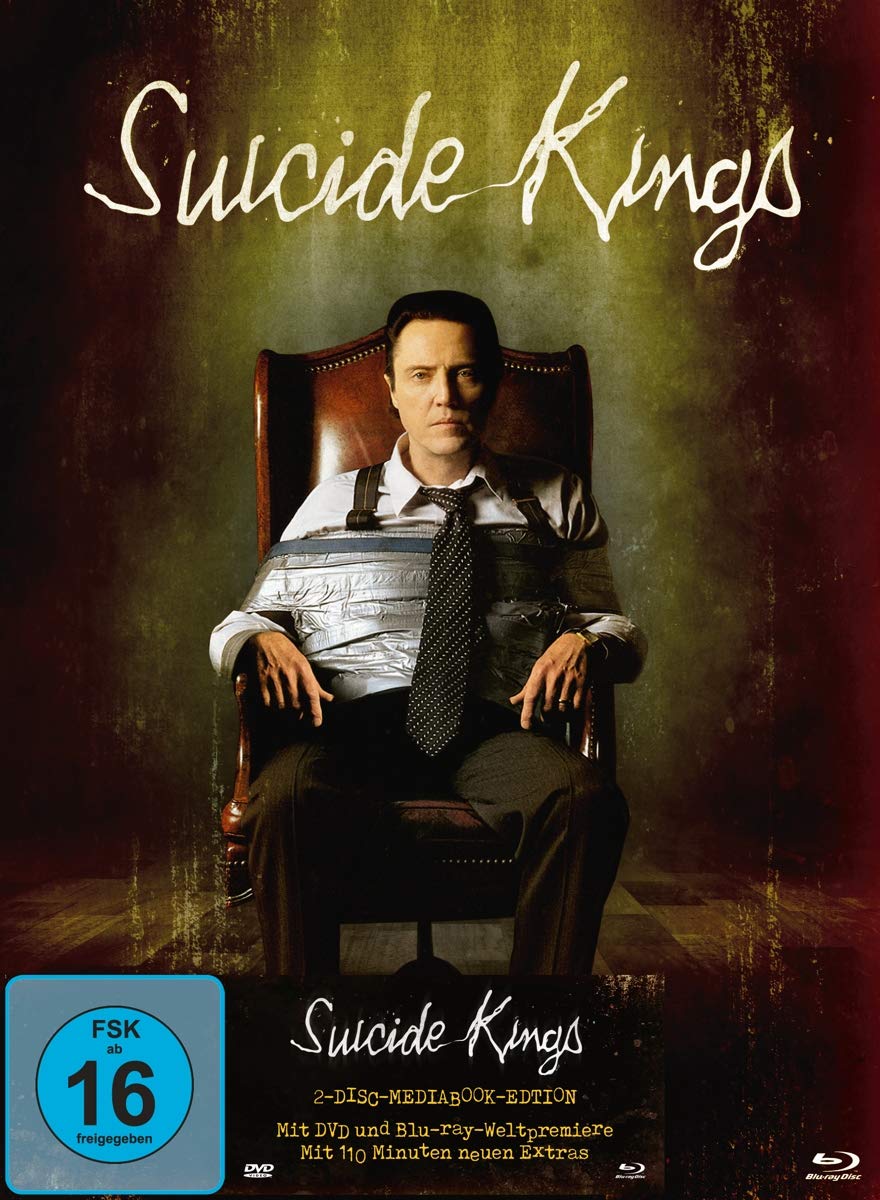
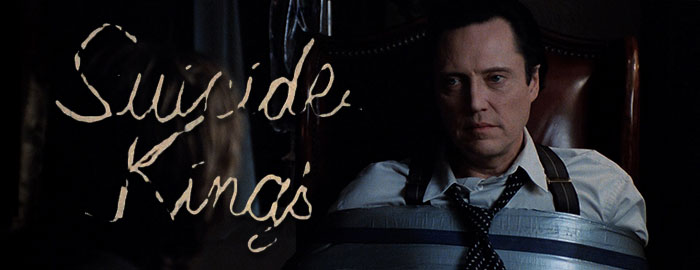
Color, 1997, 106 mins.42 secs.
Directed by Peter O'Fallon
Starring Christopher Walken, Denis Leary, Henry Thomas, Sean Patrick Flannery, Jeremy Sisto, Jay Mohr, Johnny Galecki, Brad Garrett, Nina Siemaszko, Louis Lombardi Frank Medrano, Laura San Giacomo, Cliff De Young, Laura Harris, Joseph Cali
Turbine Media (Blu-ray & DVD) (Germany RB/R2 HD/PAL), Artisan (DVD) (US R0 NTSC) / WS (1.85:1) (16:9)
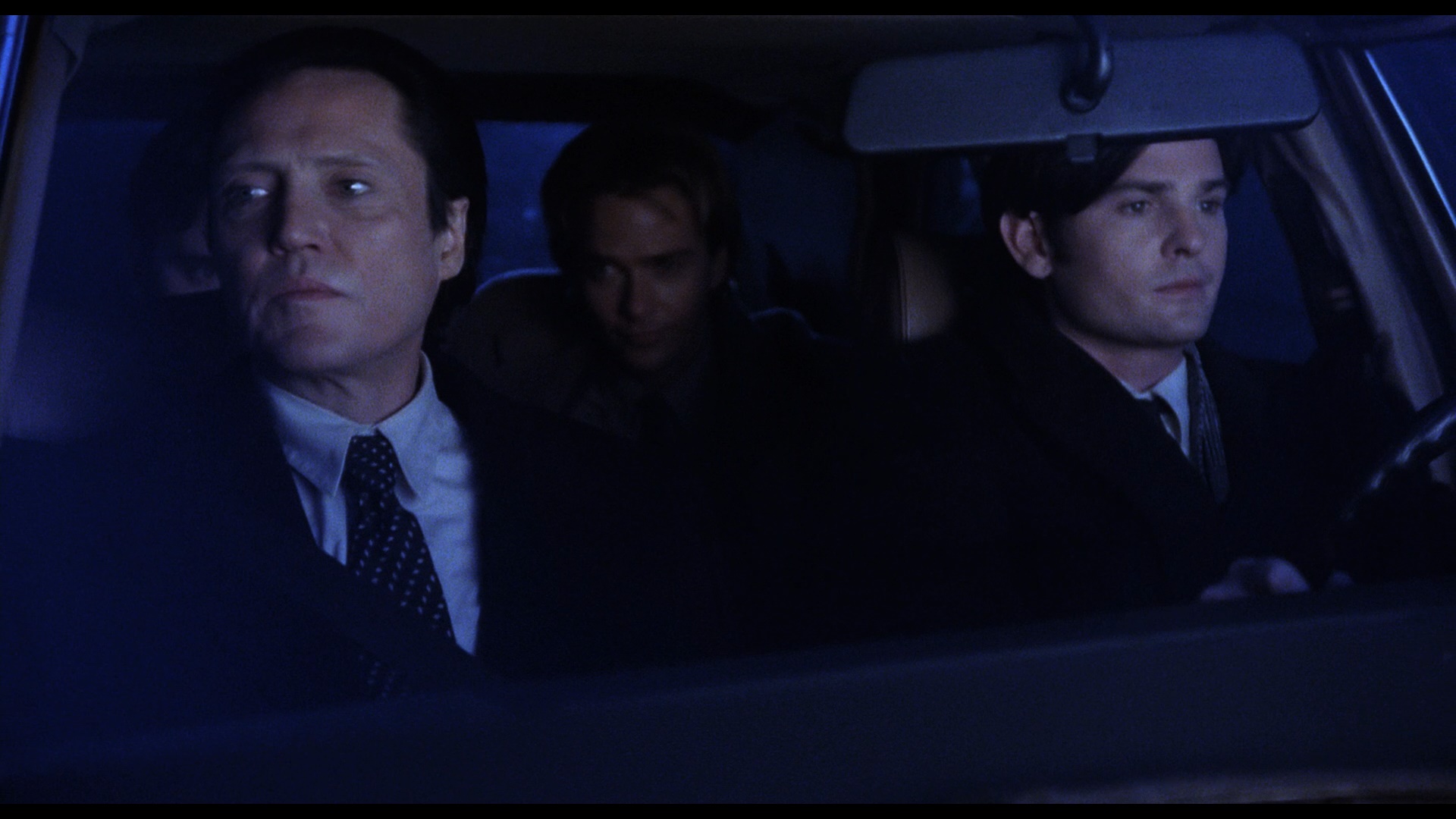 onslaught of hip
onslaught of hip 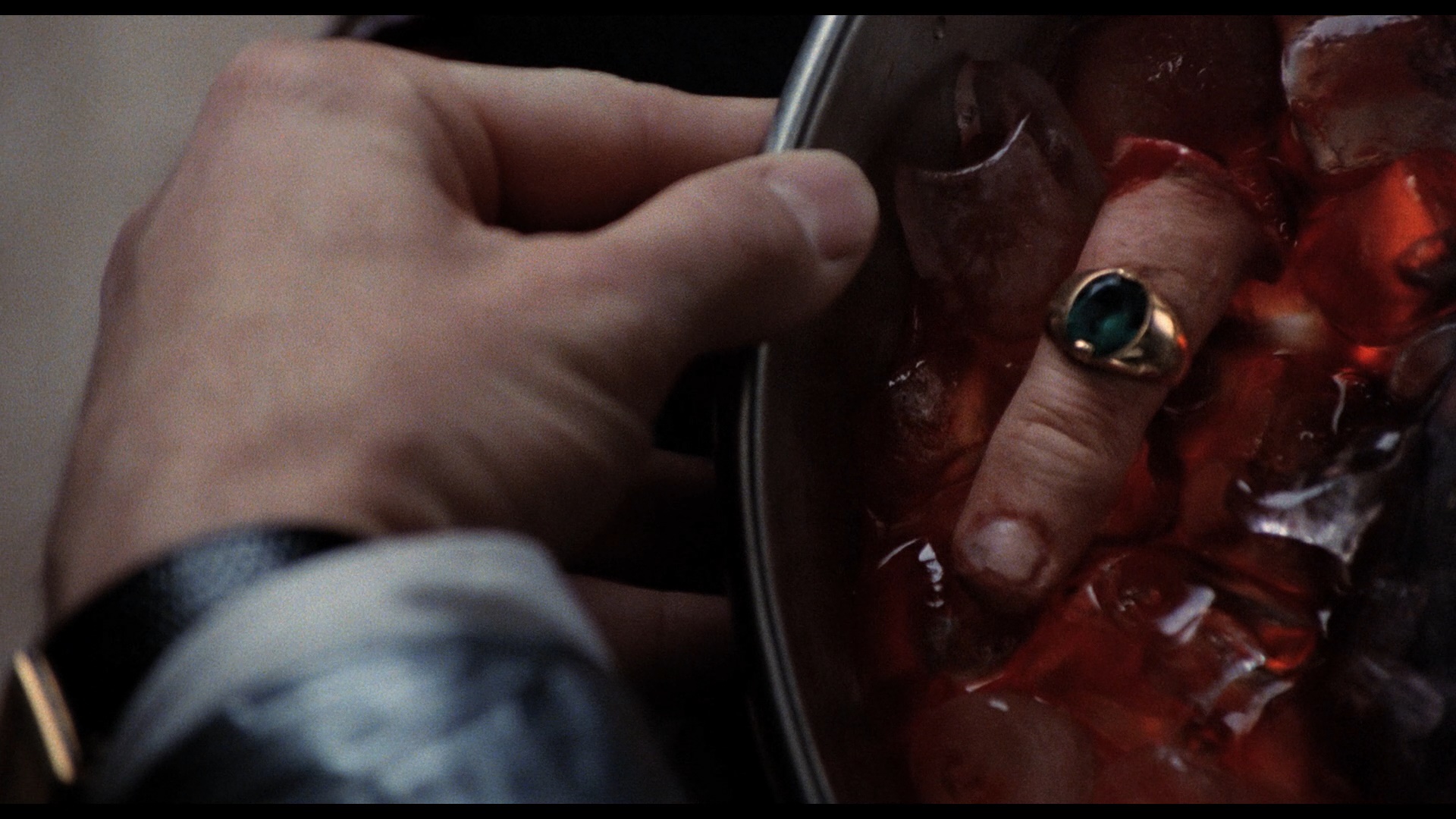 '90s crime films that arrived in the wake of Pulp Fiction and The Usual Suspect had the unintended effect of also bringing back a wave of neo noirs, some of them far better than their copycat marketing might lead you to believe. Case in point: Suicide Kings, an indie made under the banner of the quickly fading Live Entertainment and then lost a bit in the shuffle when the company morphed into the equally short-lived Artisan Entertainment (now absorbed into Lionsgate). Though featuring a stellar ensemble cast and filled with quirky banter, it's a bit different from the usual guns and twists fare of the era; in fact, much of the running time plays like a Gothic old dark house whodunit, surprisingly enough, as the characters try to ferret out a traitor in their midst over the course of a dark and stormy night. Most of all though, it's a showcase for an outstanding Christopher Walken at his Walken-iest even when he spends most of his time tied to a chair.
'90s crime films that arrived in the wake of Pulp Fiction and The Usual Suspect had the unintended effect of also bringing back a wave of neo noirs, some of them far better than their copycat marketing might lead you to believe. Case in point: Suicide Kings, an indie made under the banner of the quickly fading Live Entertainment and then lost a bit in the shuffle when the company morphed into the equally short-lived Artisan Entertainment (now absorbed into Lionsgate). Though featuring a stellar ensemble cast and filled with quirky banter, it's a bit different from the usual guns and twists fare of the era; in fact, much of the running time plays like a Gothic old dark house whodunit, surprisingly enough, as the characters try to ferret out a traitor in their midst over the course of a dark and stormy night. Most of all though, it's a showcase for an outstanding Christopher Walken at his Walken-iest even when he spends most of his time tied to a chair. 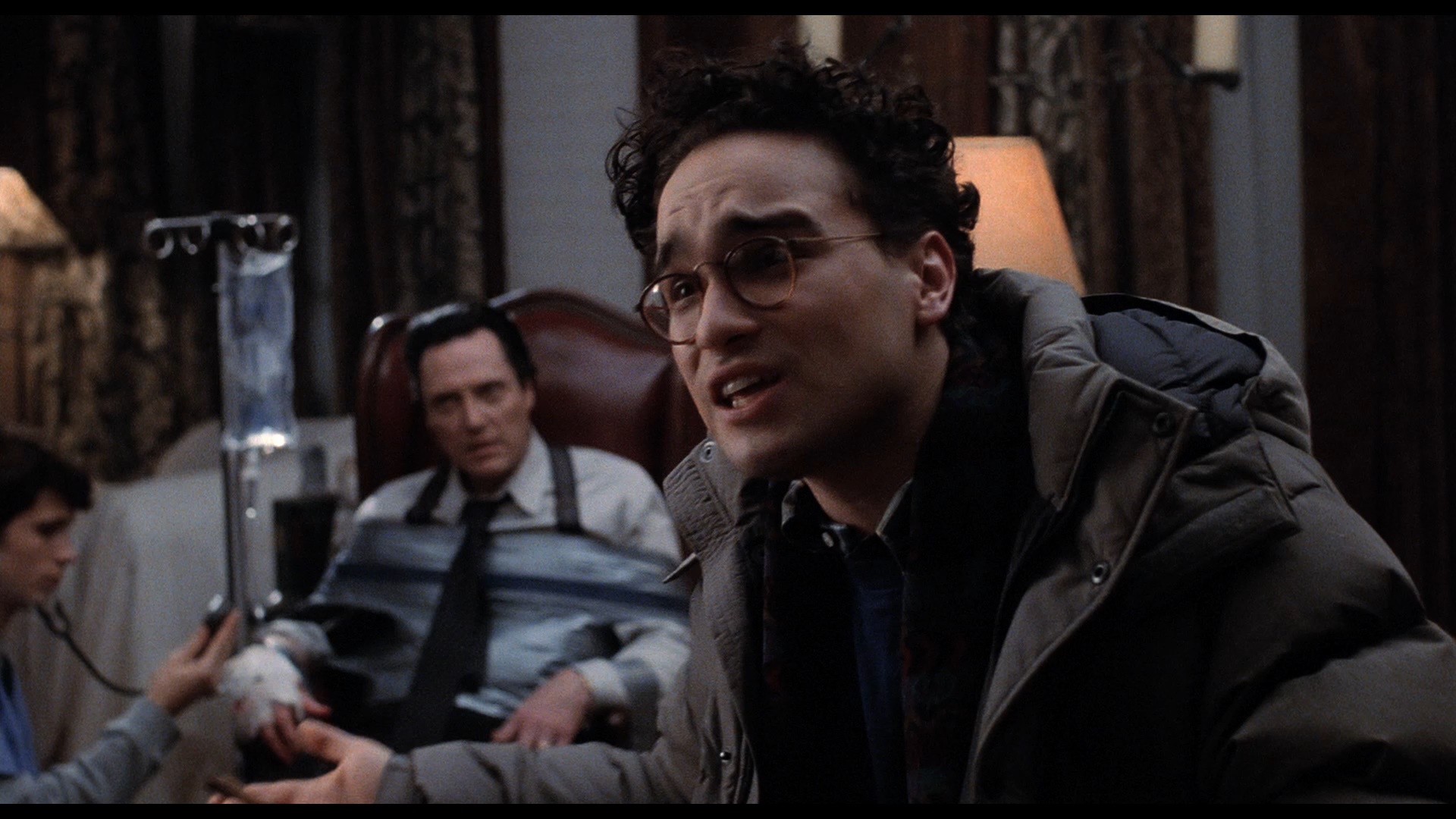 Complications arise when the neurotic Ira (Galecki) comes home to find his friends have taped an infamous mobster to a chair and
Complications arise when the neurotic Ira (Galecki) comes home to find his friends have taped an infamous mobster to a chair and 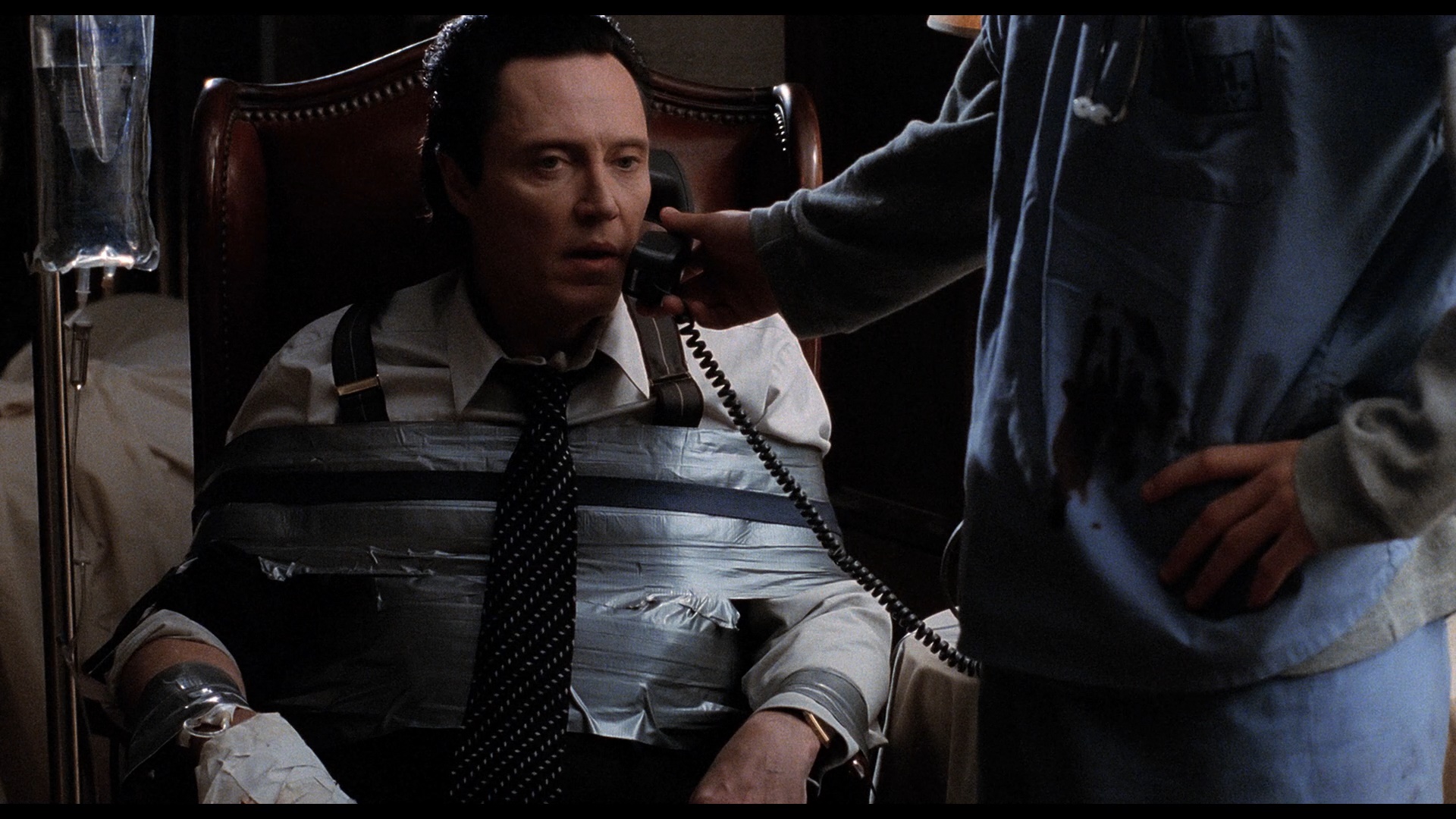 chopped off his finger in his family house, Meanwhile Charlie's right-hand man, Lono (Leary), is put into service to help find the kidnappers while also figured out his boss's location, but it also seems that an insider responsible for Elise's predicament is actually one of the young men inside the house.
chopped off his finger in his family house, Meanwhile Charlie's right-hand man, Lono (Leary), is put into service to help find the kidnappers while also figured out his boss's location, but it also seems that an insider responsible for Elise's predicament is actually one of the young men inside the house. 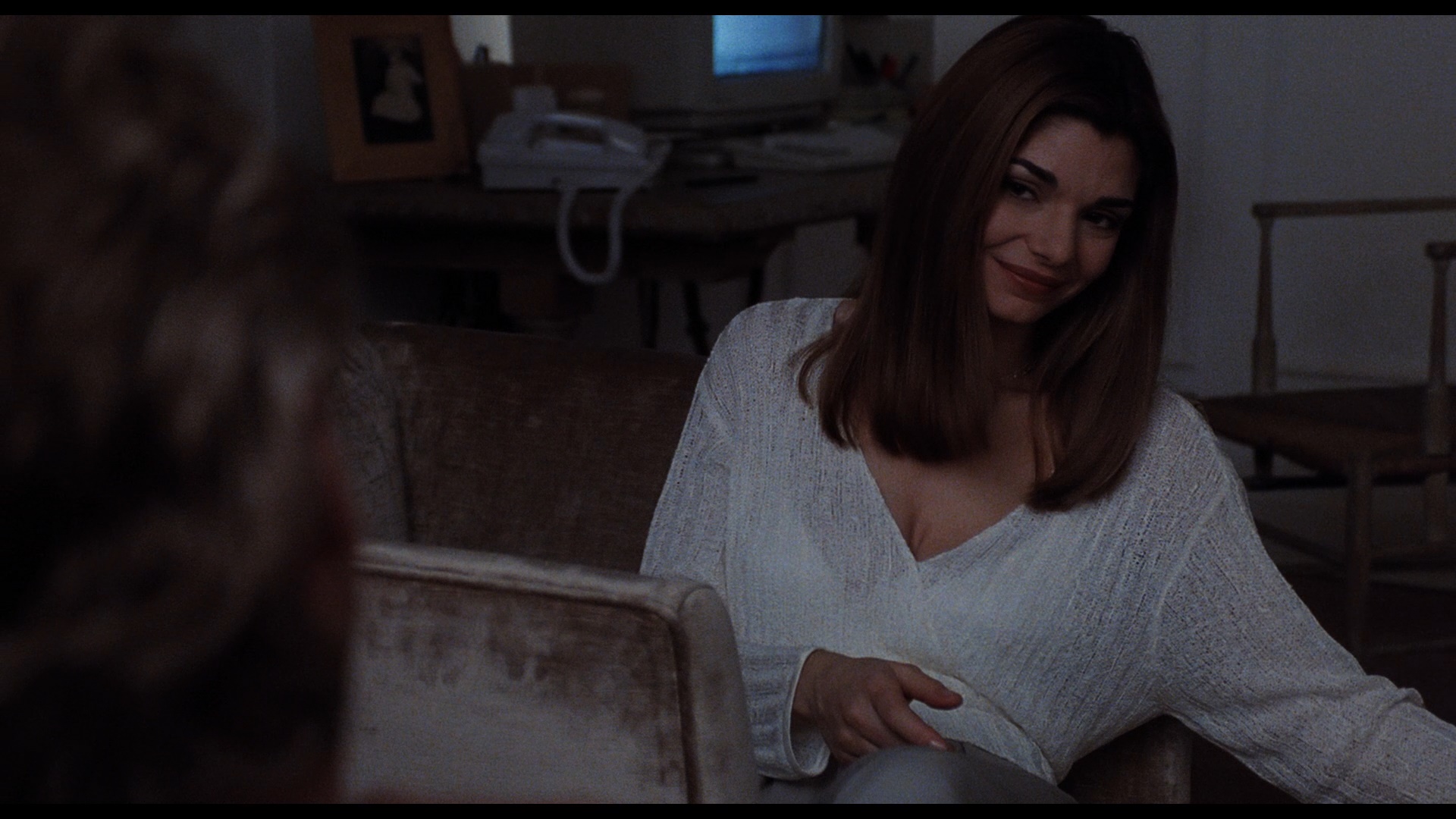 One of the earliest DVDs released by Artisan back in the format's infancy, Suicide Kings looked pretty weak at the time with a drab interlaced transfer that didn't do it too many favors and made the already dark, grainy cinematography turn into a dreary sludge. That release
One of the earliest DVDs released by Artisan back in the format's infancy, Suicide Kings looked pretty weak at the time with a drab interlaced transfer that didn't do it too many favors and made the already dark, grainy cinematography turn into a dreary sludge. That release 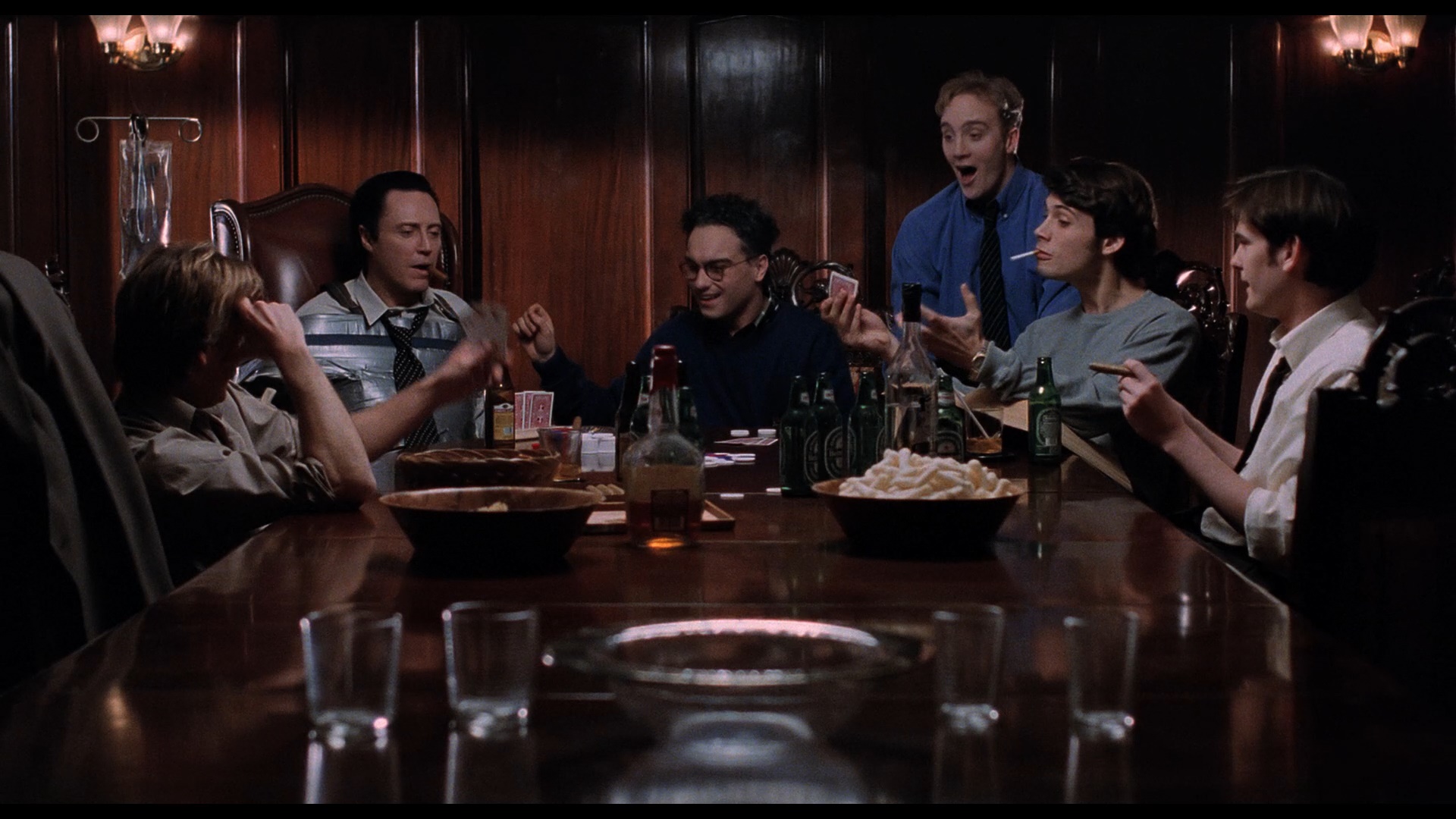 featured an okay Dolby Digital 5.1 mix and an audio commentary with director Peter O'Fallon producer/co-writer Wayne Allan Rice, who walk through the production process including the casting (which started with Walker and got everyone else on board), the eye-catching opening titles (inspired by O'Fallon's film school teacher Stan Brakhage and not Seven as everyone assumed), and the various location shoots including the finale at Catalina. The most interesting extra by far is an alternate ending featurette (17m4s) presented by O'Fallan with an intro and voiceover covering the original resolution, which was actually far more romantic and optimistic before test audiences demanded the far more nihilistic one in the final cut (and which was achieved by some pretty iffy editorial tap dancing). You also get a look at an in-between ending they tried out with a less fatal bit of payback against the two guilty parties, but that seems like the least successful option. A trailer and storyboard comparison are also included.
featured an okay Dolby Digital 5.1 mix and an audio commentary with director Peter O'Fallon producer/co-writer Wayne Allan Rice, who walk through the production process including the casting (which started with Walker and got everyone else on board), the eye-catching opening titles (inspired by O'Fallon's film school teacher Stan Brakhage and not Seven as everyone assumed), and the various location shoots including the finale at Catalina. The most interesting extra by far is an alternate ending featurette (17m4s) presented by O'Fallan with an intro and voiceover covering the original resolution, which was actually far more romantic and optimistic before test audiences demanded the far more nihilistic one in the final cut (and which was achieved by some pretty iffy editorial tap dancing). You also get a look at an in-between ending they tried out with a less fatal bit of payback against the two guilty parties, but that seems like the least successful option. A trailer and storyboard comparison are also included.  beginning) looks even more obvious now, but it's a worthwhile trade-off. DTS-HD MA audio options are presented in 5.1 and 2.0 for the English and dubbed German tracks with respective subtitles offered in both as well; the 5.1 has better separation and sounds a bit cleaner
beginning) looks even more obvious now, but it's a worthwhile trade-off. DTS-HD MA audio options are presented in 5.1 and 2.0 for the English and dubbed German tracks with respective subtitles offered in both as well; the 5.1 has better separation and sounds a bit cleaner 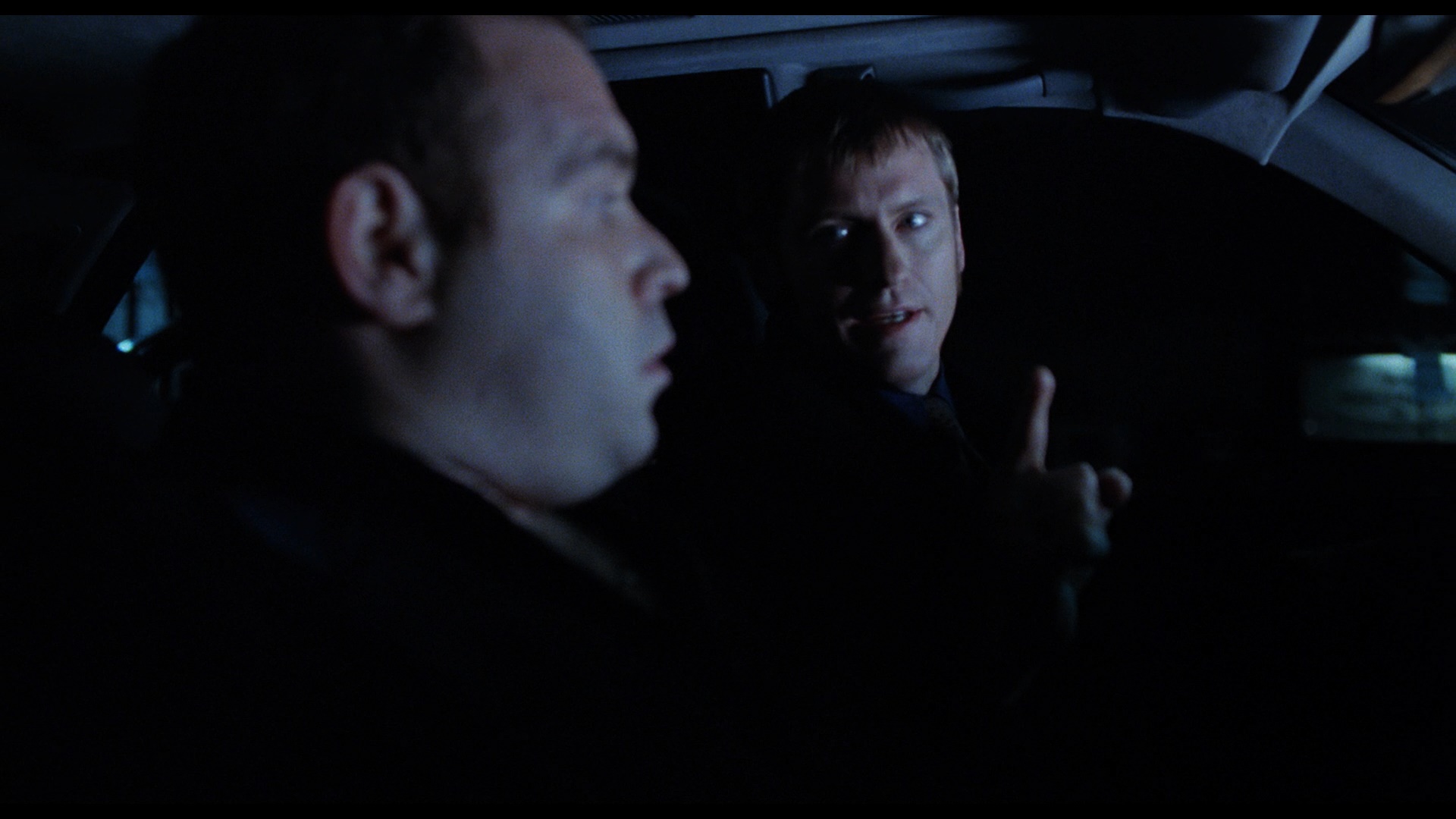 but isn't tremendously different from the 2.0. The commentary, alternate ending featurette, and trailer (with optional director intro) are ported over here, and you also get a new HD recreation of the storyboard comparison (1m10s) plus a quick behind-the-scenes comparison (1m32s) for the home security patrol sequence, a sound design comparison for the car abduction showcasing multiple audio options to showcase the mixing process, a German trailer, and a U.S. TV spot. Four completely new interview featurettes are also included, starting with a new chat with O'Fallon (19m3s) about the road to making this film starting with his gig on the creepy single-season show American Gothic, getting the actors in gear with a "pick-up basketball" approach to the script following Walken's lead, and building a rapport with Leary over those boots. Additional interviews with cinematographer Christopher Baffa (30m24s), Rice in conversation with O'Fallon (47m40s), and editor Chris Peppe (12m48s) offer a more diverse snapshot of the film including recollections about the influence of the paintings of Dutch masters, the mechanics of shooting the scream-filled tunnel abduction, the demands for star vehicles at the time, the casting process, the moving of the comedic elements closer to the beginning, the role of Graeme Revell's score, and the disappointment of the theatrical release's timing.
but isn't tremendously different from the 2.0. The commentary, alternate ending featurette, and trailer (with optional director intro) are ported over here, and you also get a new HD recreation of the storyboard comparison (1m10s) plus a quick behind-the-scenes comparison (1m32s) for the home security patrol sequence, a sound design comparison for the car abduction showcasing multiple audio options to showcase the mixing process, a German trailer, and a U.S. TV spot. Four completely new interview featurettes are also included, starting with a new chat with O'Fallon (19m3s) about the road to making this film starting with his gig on the creepy single-season show American Gothic, getting the actors in gear with a "pick-up basketball" approach to the script following Walken's lead, and building a rapport with Leary over those boots. Additional interviews with cinematographer Christopher Baffa (30m24s), Rice in conversation with O'Fallon (47m40s), and editor Chris Peppe (12m48s) offer a more diverse snapshot of the film including recollections about the influence of the paintings of Dutch masters, the mechanics of shooting the scream-filled tunnel abduction, the demands for star vehicles at the time, the casting process, the moving of the comedic elements closer to the beginning, the role of Graeme Revell's score, and the disappointment of the theatrical release's timing.